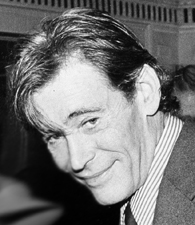Peter O’Toole is considered one of the most distinguished actors of the 20th century. His role in “Lawrence of Arabia” catapulted him to international fame in 1962, and he has since demonstrated his unique talent in genres from classical drama to contemporary comedy.
Peter O’Toole’s Early Days
Peter Seamus O’Toole was born in 1932 or 1933, though most sources list his birthdate as August 2, 1932. He was born in either Connemara, Ireland, or Leeds, England, where he spent most of his youth; “O’Toole himself professed not to know the answer, although he was fond of stressing his Irishness,” says the BBC.
In his youth, O’Toole aspired to be a journalist, and at 14 dropped out of high school to work for the Yorkshire Evening Post. After three years, he traded his job as a reporter for a position at Leeds Civic Theatre.
Sources in this Story
- The BBC: Peter O’Toole
- Encyclopedia Britannica: Peter O’Toole (Irish Actor)
- British Film Institute: Screenonline: O’Toole, Peter (1932)
- The Guardian: Peter O’Toole: Raise a glass to the last of the 60s hellraisers
- Entertainment Weekly: Peter O’Toole
- Films42.com: Tribute to Peter O’Toole
- Allmovie: Peter O’Toole
- The Guardian: Peter O’Toole obituary
O’Toole’s Acting Career
He was lauded for his 1958 portrayal of Hamlet at the Old Vic, as well as his portrayal of Shylock in a 1960 Stratford production of “The Merchant of Venice.”
He made his film debut in the 1960 film “Kidnapped,” and two years later landed the part of T.E. Lawrence in David Lean’s sweeping epic, “Lawrence of Arabia.” The role, for which he received an Oscar nomination, thrust him into the upper echelon of actors and solidified his position as one of the best actors of his generation.
The British Film Institute writes, “With blazing blue eyes, bleached hair and flowing white garments, he was a charismatic figure…It was a remarkable study in obsession, catching the right balance between mystic and man of action, bringing to the role kinds of intensity and zeal that few other British actors could have done.”
The role served as a prototype for O’Toole’s other roles. “To this day, O’Toole specializes in men whose obsessions override—or deform—their wills,” writes Troy Patterson in Entertainment Weekly. “You can’t help but root for the vital daftness of his heroes and the bursting vigor of his villains. The common thread is soaring flamboyance.”
He followed Lawrence by portraying Henry II in the 1964 film “Becket,” and opposite Katharine Hepburn in 1968’s “The Lion in Winter.” He received an Oscar nomination both times.
He then turned to musicals, earning another Oscar nomination for 1969’s “Goodbye, Mr. Chips.” In an effort to fund the musical “The Ruling Class,” in which he played a delusional earl who believes he is Jesus, O’Toole agreed to star as Don Quixote in “Man of La Mancha.” Though his performance as Quixote was widely panned (“O’Toole stiffly mimes his lyrics from behind a prosthetic honker and a bad beard,” describes Patterson), he received another Oscar nod for “The Ruling Class.”
Off-stage, O’Toole was notorious for his drinking and partying. He once invited his understudy, the then-unknown Michael Caine, out for drinks. When the men woke up in a strange apartment, they realized two days has passed, and later learned that the restaurant they were drinking in had banned them.
His lifestyle caught up with him in the 1970s; he had his pancreas and parts of his stomach removed in 1976, and his wife divorced him in 1979. His 1980 stage portrayal of Macbeth at the Old Vic was a notorious failure, described by The Times of London as “a milestone in the history of coarse acting.”
The Rest of the Story
O’Toole had a career resurgence in the early ’80s with three well-received roles, the most popular being his depiction of Alan Swann in 1982’s “My Favorite Year.” Since his comeback, O’Toole’s performances have confirmed his early promise as one of the most distinguished actors of his generation.
In 2003, after receiving seven Oscar nominations without a win, he was offered an Academy Award for lifetime achievement. He initially declined the honor, saying, “I am still in the game and might win the lovely bugger outright.” He later decided to appear at the ceremony when the academy said it would give the award anyway.
He was nominated for an eighth Oscar in 2008 for his role in the film “Venus,” though again couldn’t secure a win. He holds the record for most nominations without a victory. He received other acting awards, including two Golden Globe Awards for Best Actor in a Drama and three National Board of Review awards for Best Actor.
O’Toole died December 14, 2013 after a long illness.
Interviews With Peter O’Toole
- Charlie Rose, December 19, 2000
- David Letterman, 1995: Part 1 and Part 2











